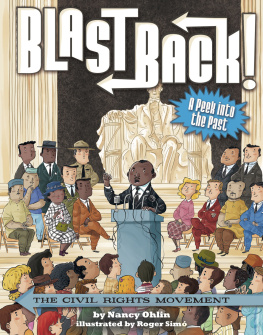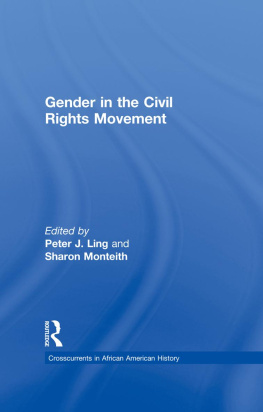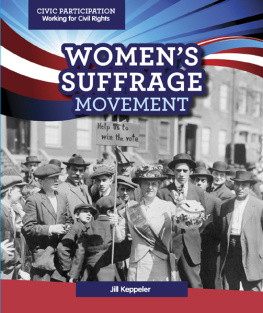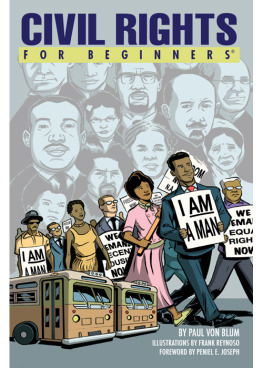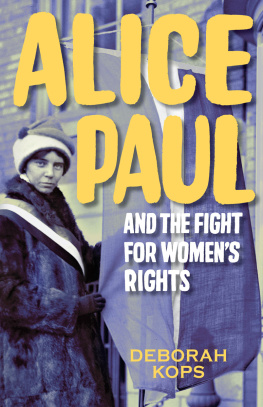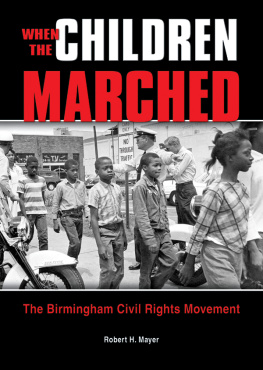
Published in 2020 by
Lucent Press, an Imprint of Greenhaven Publishing, LLC
353 3rd Avenue
Suite 255
New York, NY 10010
Copyright 2020 Greenhaven Press, a part of Gale, Cengage Learning
Gale and Greenhaven Press are registered trademarks used herein under license.
All new materials copyright 2020 Lucent Press, an Imprint of Greenhaven Publishing, LLC.
All rights reserved. No part of this book may be reproduced in any form without permission in writing from the publisher, except by a reviewer.
Designer: Deanna Paternostro
Editor: Jennifer Lombardo
Cataloging-in-Publication Data
Names: Lombardo, Jennifer.
Title: Unsung heroes: women of the civil rights movement / Jennifer Lombardo.
Description: New York: Lucent Press, 2020. | Series: Lucent library of black history | Includes index.
Identifiers: ISBN 9781534568686 (pbk.) | ISBN 9781534568655 (library bound) | ISBN 9781534568624 (ebook)
Subjects: LCSH: Women civil rights workersUnited StatesHistory20th centuryJuvenile literature. | African American women civil rights workersHistory20th centuryJuvenile literature. | Civil rights movementsUnited StatesHistory20th centuryJuvenile literature. | Women civil rights workersUnited StatesBiographyJuvenile literature. | African American women civil rights workersBiography Juvenile literature.
Classification: LCC E185.61 L66 2020 | DDC 323.0922 B--dc23
Printed in the United States of America
Some of the images in this book illustrate individuals who are models. The depictions do not imply actual situations or events.
CPSIA compliance information: Batch #BW20KL: For further information contact Greenhaven Publishing LLC, New York, New York at 1-844-317-7404.
Please visit our website, www.greenhavenpublishing.com. For a free color catalog of all our high-quality books, call toll free 1-844-317-7404 or fax 1-844-317-7405.
CONTENTS
FOREWORD
F rom medicine and law to sports and literature, African Americans have played a major role in the history of the United States. However, these groundbreaking men and women often faced prejudice and persecution. More than 300 years ago, Africans were taken in chains from their home and enslaved to work for the earliest American settlers. They suffered for more than two centuries under the brutal oppression of their owners until the outbreak of the American Civil War in 1861. After the dust settled four years later and thousands of Americansboth black and white-had died in combat, slavery in the United States had been legally abolished. By the turn of the 20th century, with the help of the 13th, 14th, and 15th Amendments to the U.S. Constitution, African American men had finally won significant battles for the basic rights of citizenship, but the fight for equality was far from over. Even after the successes of the civil rights movement, the struggle continuedand it still continues today.
Although the history of the African American experience is not always a pleasant story, it is also filled with powerful moments of positive change. These triumphs of human equality were achieved with help from brave social activists such as Frederick Douglass, Martin Luther King Jr., and Maya Angelou. They all experienced racial prejudice in their lifetimes and fought by writing, speaking, and acting against it. By exposing the suffering of the black community, they brought people together to try to remedy centuries worth of wrongdoing.
Today, it is important to learn about the history of African Americans and their experiences in modern America in order to work toward healing the divide that still exists in the United States. This series aims to give readers a deeper appreciation for and understanding of a part of the American story that is often left untold.
Even before the legal emancipation of slaves, black culture was thriving despite many attempts to suppress it. From music to language to art, slaves began cultivating an identity that was completely unique. Soon after these slaves were granted citizenship, African American culture burst into the mainstream. New generations of authors, scholars, painters, and singers were born, and they spread an appreciation for black culture across America and the entire world. Studying the contributions of these talented individuals fosters a sense of optimism. Despite the cruel treatment and racist attitudes these men and women faced, they never gave up, and they helped change the world with their determination and unique voices.
The Lucent Library of Black History offers a glimpse into the lives and accomplishments of some of the most important and influential African Americans across historical time periods and areas of interest. From the arts and sports to the military and politics, the wide variety of topics allows readers to get a full and clear picture of the successes and struggles African Americans have experienced and are continuing to experience. Titles examine primary source documents and quotes from historical and modern figures to provide an enriching learning experience for readers. With detailed timelines, unique sidebars, and a carefully selected bibliography for further research, this series gives readers the tools to independently discover historical events and figures that do not often get their time in the spotlight.
By balancing the harsh realities of the past and present with a sense of hopefulness for the future, the Lucent Library of Black History helps young people understand an essential truth: Black history is a vital part of American history.
SETTING THE SCENE: A TIMELINE
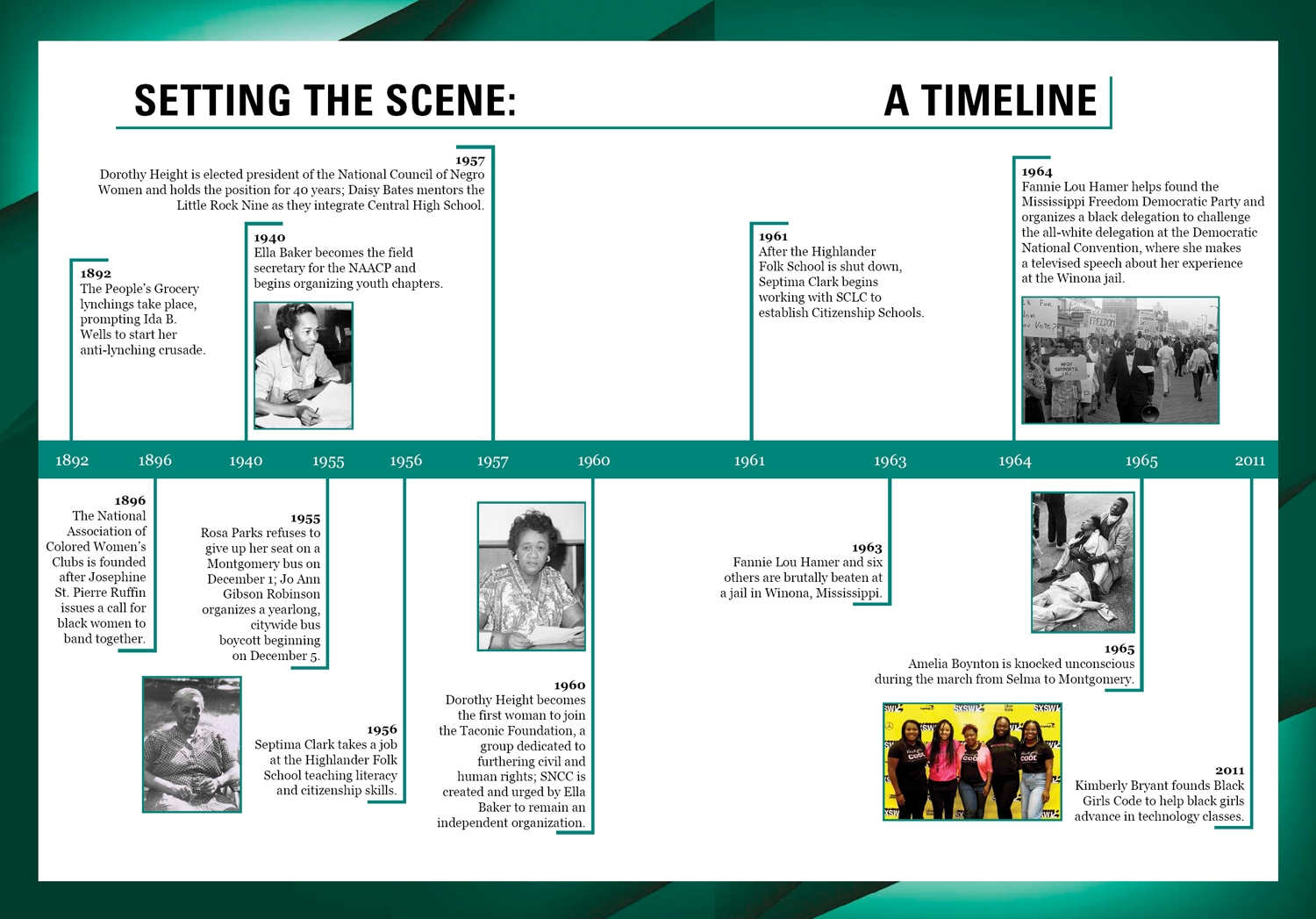
INTRODUCTION
WOMENS WORK
W hen people think about the civil rights movement of the 1950s and 1960s, it is likely that they immediately think of Martin Luther King Jr., the preacher who was the public face of the civil rights movement. Many people also likely call to mind Malcolm X, who advocated a less peaceful approach to the goal of giving black men and women rights equal to those white people enjoyed. While these two men were instrumental in helping black people achieve civil rights, many black women were equally influential. In fact, the civil rights movement, according to historian Lynne Olson, was a struggle that women helped to mold, lead, and organize from its very beginning.
Starting with the abolitionist movement to end slavery in the 19th century, black women have championed many efforts to end racial injustice. They have worked to end lynching (killing someone for an accused crime without a proper legal trial), have fought for fair housing, and have protested discrimination and prejudice wherever they found it. Black women, in fact, participated at every level of the civil rights movement. Those who assumed leadership roles, however, were often overlooked and given little credit for their efforts. For example, even today, many children learn in school that Rosa Parks, the woman who helped start the Montgomery bus boycott, refused to move to the back of the bus because she had worked a long day and was tired. This implies that her involvement in the civil rights movement was accidental. In reality, Parkss action was a calculated act of civil disobedience, and she was so influential that some have called her the Mother of the Freedom Movement.
Although Parks made it into the history books, hundreds of women in the civil rights movement were not
Hundreds of these women played small but significant roles in the fight for equality. Joanne Christian, for instance, was a 14-year-old who walked the streets of Albany, Georgia, convincing black people to register to vote. For her efforts, she was arrested 13 times. Clara Luper was an Oklahoma civil rights activist who led a sit-in at a drugstore lunch counter in Oklahoma City; her actions helped lead to the integration of lunch counters in Oklahoma, Missouri, Kansas, and Iowa.
Next page






